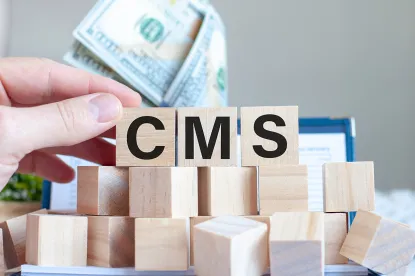The Occupational Safety and Health Administration, as well as the Centers for Medicare & Medicaid Services, are preparing to issue new requirements that will have a major impact on healthcare employers, as well as other employers across the U.S. On Thursday, the executive branch announced its plans to have OSHA require employers to ensure that employees either (a) become fully vaccinated against COVID-19 or (b) test negative for COVID-19 on a weekly basis. This new standard would apply to all U.S. employers with 100 or more employees, including all such employers in the healthcare industry. This would be the second emergency temporary standard from OSHA that applies to healthcare employers (we covered the prior standard here). Additionally, CMS announced that it will be releasing its own interim rule in October that requires most healthcare employers (including hospitals, ambulatory surgical centers and all other Medicaid and Medicare-certified facilities) to ensure employees are vaccinated as a condition for participating in Medicare and Medicaid.
OSHA and CMS have not yet issued the requirements or fully described what they will require. Nevertheless, there are several key takeaways now for employers. First, because the OSHA standard will allow employees to avoid the vaccine mandate by testing negative on a weekly basis, and because many employees have strongly opposed becoming vaccinated, employers should consider acquiring a sufficient numbers of COVID-19 tests well in advance. (However, before doing so, it would be prudent to watch for whether OSHA will require the tests to satisfy specific requirements and whether CMS will provide a similar exemption.) Employers also should start to consider the other benefits and drawbacks of focusing on requiring negative tests rather than vaccinations (if that is permissible under any CMS standard that applies to them), such as the fact that an employer may need to pay employees for time spent completing COVID-19 tests.
Additionally, because these new standards may create significant employee morale issues at a time when many employers are facing severe staffing shortages, employers should consider preparing their employee messaging strategies soon. Employers may be able to mitigate the employee morale effects by ensuring employees understand that these requirements are being imposed by federal agencies not the employer itself, and that these requirements will apply at any company or other organization in the U.S. (exempting certain small employers with fewer than 100 employees and who are not Medicare or Medicaid-certified). These facts may diminish the effect the standard has on recruitment and retention.
Employers also should understand that private parties almost certainly will challenge this new standard in litigation. While many have criticized this move as an overreach by OSHA, the agency does have authority to impose requirements when necessary to protect employees from substantial and unreasonable harm in the workplace. Ultimately, the standard’s vulnerability will depend in large part on whether it is narrowly tailored and omits extraneous requirements that could exceed OSHA’s authority (arguably such as requiring employers to provide additional paid leave to employees to become vaccinated). That said, even if the standard is vulnerable to challenge, employers may wish to err on the side of caution and comply with it, in order to avoid potential exposure to interim fines, litigation costs, and certain other risks.
Finally, employers should continue to monitor this issue closely, as OSHA and CMS should be providing further information in the near future, and then issuing the standards themselves. Several key details remain unclear, including (i) whether the CMS standard will follow the OSHA standard in allowing employers to avoid the vaccine mandate by obtaining negative tests, (ii) whether the standards will apply to remote employees or exempt any other types of workers, (iii) whether the standards will provide guidance on how employers should address employees’ religious or disability accommodation requests (valid accommodation requests likely will exempt employees from the vaccine mandate, but it may be difficult in most cases for an employee to articulate a valid disability or religious reason to avoid taking any COVID-19 test), and (iv) when the OSHA standard’s requirements will become effective. CMS has announced that its standard will become effective in October and, if OSHA follows a schedule similar to the schedule it followed when it issued the prior healthcare emergency standard, it will publish the standard itself within the next one to two weeks, and the standard’s requirements will become effective within approximately two to four weeks after that. (It is possible, however, that OSHA will follow a more accelerated schedule for this new standard.) Employers should pay close attention for further information and, in the interim, begin planning for how they will communicate these new requirements to employees and otherwise comply.




 />i
/>i

